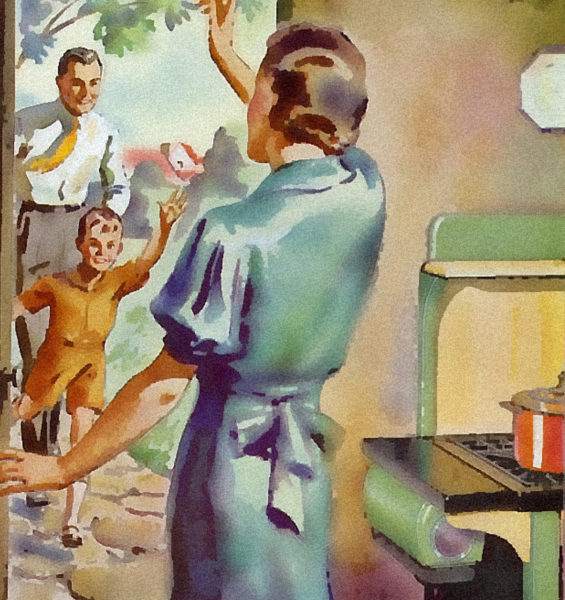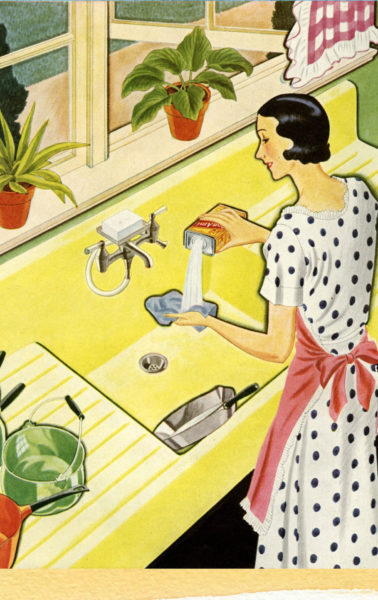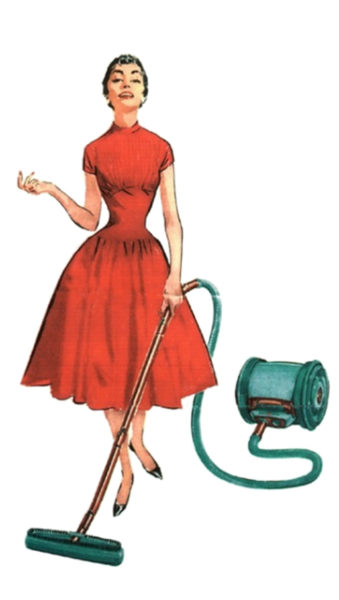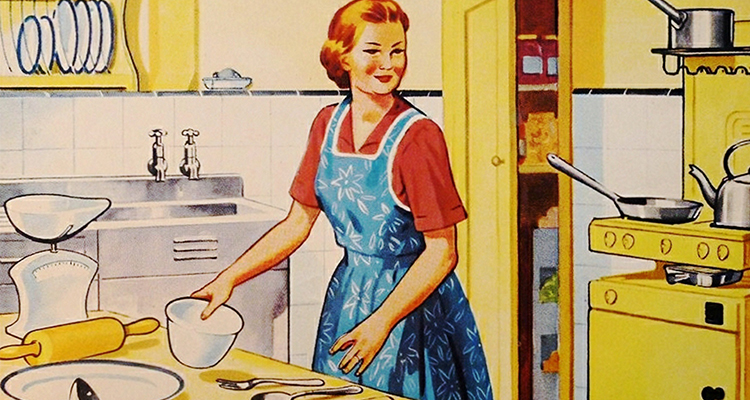By this time, Margaret Sanger had won her lawsuit in New York that would allow doctors to give advice about birth control methods to their married patients, and the 19th Amendment had been passed guaranteeing women the right to vote. Despite these sweeping changes on the national stage, life for women in Wheeling, West Virginia, was evolving at a creeping pace. After all, two decades later a young Wheeling woman was excommunicated from the Catholic church for appearing in a local beauty pageant because of the scandal of wearing a swimsuit in public.
Nonetheless, time has marched on, and marital roles have moved away from what most of us imagine was a more Donna Reed-type era with Mom in the kitchen in pearls and heels, and dad in the office in suit and tie; his household duties limited to lawn mowing and fixing a creaking door or two. Although I don’t know much about the Cochrans beyond what public records reveal, I do know that Mr. Cochran was an accountant at Wheeling Steel, and Mrs. Cochran, according to her death certificate, was a “housewife.”
 Sometimes I imagine her toiling away in what was then her dining room, dusting the oak doorframes and stained-glass windows. I think about her putting in long days of scrubbing the kitchen floor and bending over the tub cleaning its white surface until it shined. She was 34 years old when they moved into their brand-new home on Edgington Lane, so I am sure she had a lot of pride in its upkeep. She and Mr. Cochran both died in the house of cirrhosis of the liver in 1947 and 1949, respectively.
Sometimes I imagine her toiling away in what was then her dining room, dusting the oak doorframes and stained-glass windows. I think about her putting in long days of scrubbing the kitchen floor and bending over the tub cleaning its white surface until it shined. She was 34 years old when they moved into their brand-new home on Edgington Lane, so I am sure she had a lot of pride in its upkeep. She and Mr. Cochran both died in the house of cirrhosis of the liver in 1947 and 1949, respectively.
Other families came and went in the decades that followed. In 2009, I bought the Craftsman-era house just days before my husband and I were married. Not long after, a battle over marital roles began with the biggest issue being cleaning the house.
My husband is an over-the-road truck driver, which means he is gone most of the week and home for a short time on the weekends. I am a college professor, which means that I work from home for most of the week and on the weekends. Having lived alone for a while before getting married, neither of us were used to having someone else offer input on our living spaces. Although both of us were working in excess of 60 hours a week, it quickly became obvious that he expected me to do all of the work around the house. Obviously, this led to conflict.
A 2017 study from the Pew Research Center reports that 78 percent more women worked 50 hours or more per week in 2017 than they did in 2000. They are also making more money than they ever have before, which means larger contributions to household incomes. Despite these increases in both work hours and salary, women still do more of the housework than their male partners. According to data collected by the Bureau of Labor Statistics in 2018, only 19 percent of married men acknowledged doing traditional household chores, such as laundry, mopping and dishwashing, while 49 percent of women reported carrying out those tasks.
Even when men and women say that they plan to be equal in both working outside the home and housework, studies show time and again that the major cleaning load far more often falls to women. This percentage difference increases after children are born.
 THE ANSWER REVEALED
THE ANSWER REVEALED
Over the past decade that we have been married, my husband Jim and I have had more arguments about the state of our home than anything else. These disagreements intensified after our son was born, which means that I am not only working long hours each week, but I am also raising a child with a partner who is home around 36 hours per week on average. Obviously, we were both very frustrated.
This frustration came to a head one evening after a dinner party with friends. They, too, were struggling with household roles. Heated debates ensued amongst the four of us. The tension was finally broken when our friend Tristan said, “I know the secret to a happier marriage.”
His wife, Cherika, and I smirked in his direction while Jim craned his head to listen.
“You do, huh?” his wife asked sardonically, clearly still irritated by our recent fracas. “Well, what’s that?”
Tristan looked the three of us in the face one at a time and said, “A Roomba.”
Everyone but him burst into riotous laughter. He interrupted our peals of amusement with a straight face: “No, seriously.”
He explained, “Look, it would be one less thing to complain to about. Wouldn’t it be nice to come home to clean floors for a change?”
Cherika shot him a look implying that she did keep their floors clean.
None of us bought his argument. It seemed ridiculous. The secret to a peaceful marriage is a robotic floor cleaner?
 Eventually, they headed home, and in the weeks that followed, the Roomba story became a joke amongst the four of us, but Tristan never let it go. Last month, he bought a Roomba.
Eventually, they headed home, and in the weeks that followed, the Roomba story became a joke amongst the four of us, but Tristan never let it go. Last month, he bought a Roomba.
From the day they plugged it in, “Harry,” as their sons like to call it, has been maintaining decency in their household both in cleanliness and marital relations.
According to Tristan, “The robot vacuum seriously does help relationships. When you come home, the last thing you want to do is jump into cleaning. That anxiety you get every day seeing the mess the kids or pets left in their path of destruction!!! Yuck … but when you have assistance … a robot that can follow the destruction and turn it into a paradise … it’s a breath of fresh air every day when you wake up or come home from a long day at work!! It even motivates you and the kids to pick up the big things off the floor so the robot can do its job with no issues. The kids get excited about helping their friend ‘Harry’ clean up!”
We visited them last weekend and saw Harry in action. At one point, he drifted down the hall and got stuck under the bed in the master bedroom, but in seconds Tristan had fished him out, untangled the ribbons he had inhaled, and sent him back on his way to clean up the remaining dog hair and Cheerio crumbs.
Jim is committed to getting a Roomba now. I am pretty sure he doesn’t think it will stop us from disagreeing about whose job it is to clean the house after a long day of work and raising a child, but only time will tell. I half expected to find a robot vacuum of one kind or another in my Easter basket this year right next to the marshmallow Peeps and Cadbury eggs.
Although women are still lifting a heavy domestic load in 2019, at least this unequal distribution of work is now seen by many as a problem to be solved. Back when Mrs. Cochran became the lady of this house, it wasn’t even a question. Women did the housework. Men paid the bills. If I could go back in time, I would give Mrs. Cochran a Roomba. It might not have made her marriage better, but it would have eliminated one of the many household chores she was saddled with based solely on her gender.
• Christina Fisanick, Ph.D., is an associate professor of English at California University of Pennsylvania, where she teaches expository writing, creative non-fiction and digital storytelling. She is the author of more than 30 books, including her most recent memoir, “The Optimistic Food Addict: Recovering from Binge Eating Disorder.” She has been a Weelunk contributing writer since 2015. Christina is a 1996 graduate of West Liberty University and a member of Ohio Valley Writers. She lives in Wheeling with her family.



